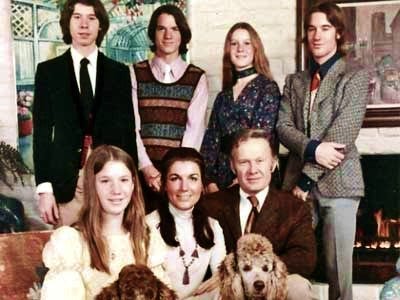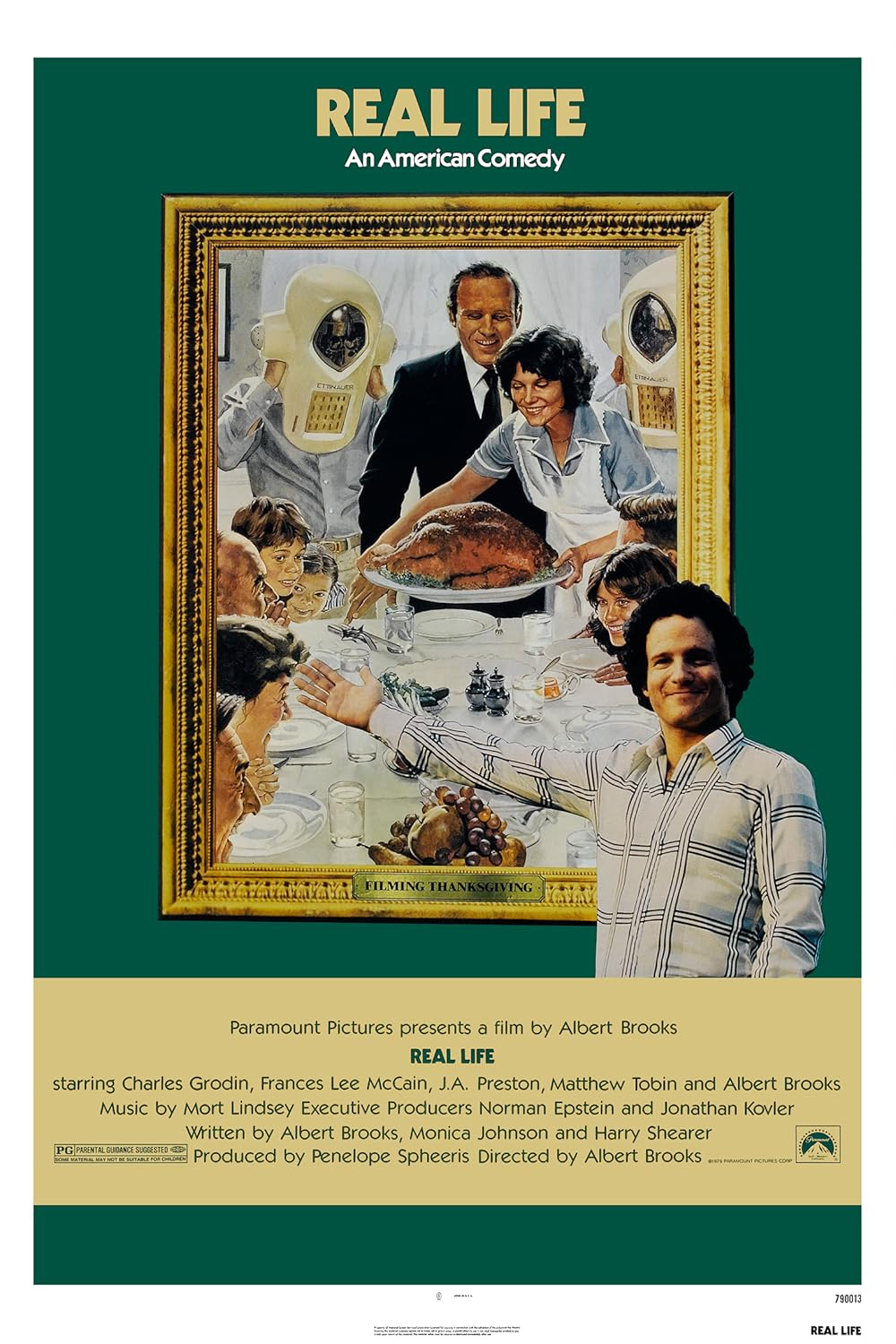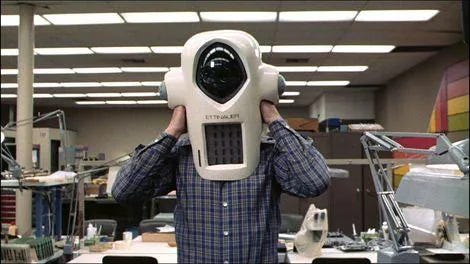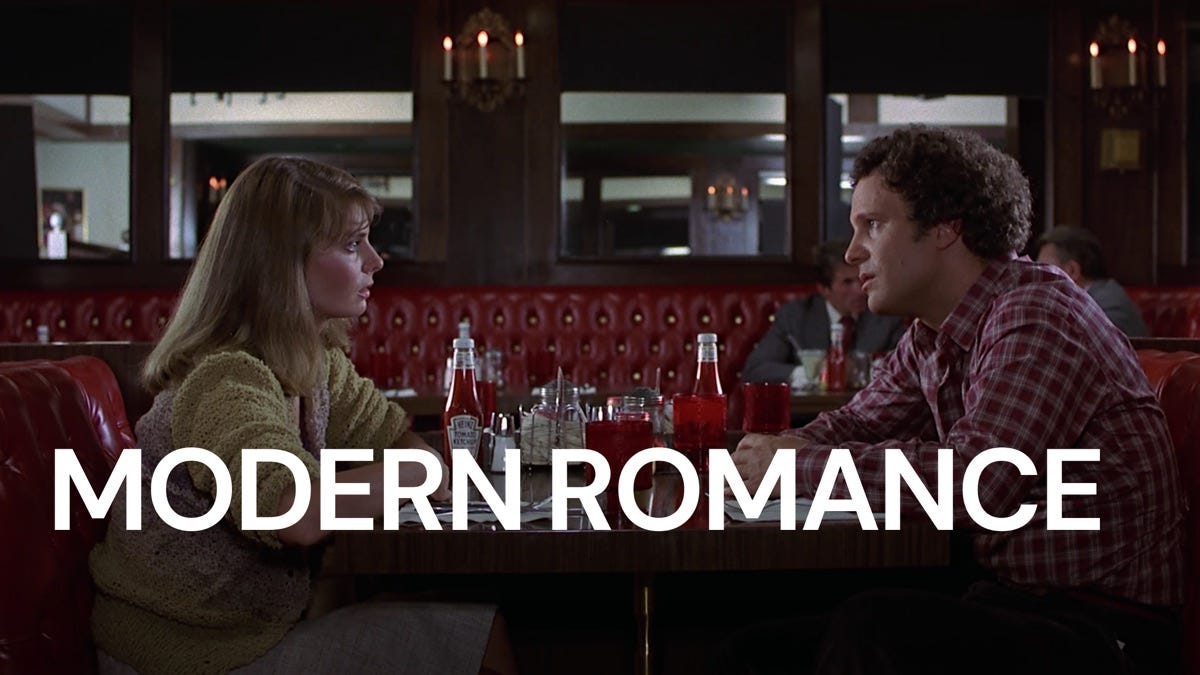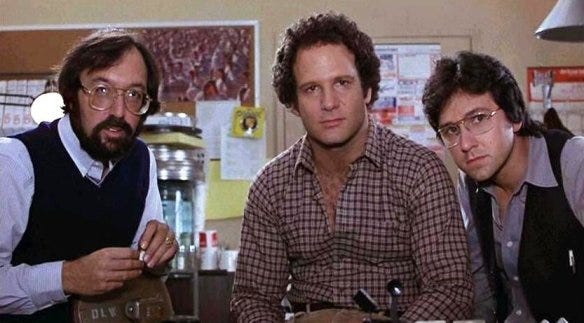Real Life/Modern Romance
Two Albert Brooks films that defined a generation of comedy and one of them created a whole genre of comedy to come...
Real Life (1979)
Albert Brooks still remains one of the most significant voices in modern comedy. There are so many of his films that are worth covering, but I thought exploring his first two films would be an interesting way to talk about how Brooks’s comedy revolutionized the form.
First up we have Brooks’s directorial debut, Real Life (1979), which is based on the 1973 reality show An American Family, which is the first reality show ever made. The show was 12 episodes and followed the Loud family. The show was not only significant for being the first reality show, but also was the first show to feature an openly gay character in Lance Loud, the family’s eldest son.
When Brooks was a young comedian, he read an article in TV Guide about the show written by anthropologist Margaret Mead. She said that the show was…
as new and significant as drama or the novel… a new way in which people can learn to look at life, by seeing the real life of others interpreted by by the camera.
This quote is revisited at the beginning of Real Life, where Brooks continues to say that his film is the “next step” in this process, where he intends to not only document a real family, but also the people who have come to film them.
Albert Brooks positions himself as the egotistical and out of touch Hollywood director who will do anything to make his project work. I think it’s pretty hilarious the Brooks wrote himself into his directorial debut and chose to depict himself in this way. It reminded me a lot of how Nathan Fielder positions himself in shows like Nathan For You and The Rehearsal.
The first part of the film after the main credits shows how the project was put together and what the audience can expect. Brooks introduces us to the technology behind the documentary, which includes heat-seeking cameras put into the walls of the chosen family’s house. And for a more mobile approach, they also have new state of the art cameras called the Etinauer 226-XL, which is worn over the head and records digitally (at this time digital cameras were not even close to being widely available). These cameras were meant to capture the more subtle moments that the heat-sensing cameras on the wall couldn’t.
Once we’re introduced to the team and all of the technology that will be used for the film, the selection of the family begins. Ultimately it’s between two families who seem to be exactly the same. Albert Brooks sums up their choice perfectly.
Our research was so thorough the computers actually coughed up two perfect families. If I were a liar, I could tell you that we chose one over the other for complicated psychological reasons. But I'm a comedian, not a liar. I can afford the luxury of honesty. The Feltons lived in Wisconsin; the Yeagers lived in Arizona. YOU spend the winter in Wisconsin...
What’s so unique and a bit… unsettling about this film is that it so eloquently satirizes reality television well-before it took off as one of the most watched genres in America. This film is pretty tame in its satire compared to what we have on TV today, but when you consider that it only had An American Family to compare it to, it’s a great send-up of the manipulation that has to take place in order to make a piece of reality television interesting. By following the filmmakers of the project, we see just how “real” reality television can be in the modern media landscape.
This film holds a special place in film history as the first mockumentary film. After it we see the likes of This is Spinal Tap (1984) which leads to all of the great Christopher Guest films of the 90’s and the 2000’s like Waiting for Guffman (1996) and Best in Show (2000). While it may seem a bit mild today, watching this with historical context is key to understanding its influence on modern comedy and its ability to seemingly predict the problems of reality television. This is quite the ambitious film to start with as a director, but Albert Brooks’s next film would look to redefine another genre: the romantic comedy.
Modern Romance (1981)
Modern Romance was Albert Brooks’s follow up to Real Life and is more traditional than the latter, but still is able to add a subtle twist to the genre.
In romantic comedies there is the infamous “second act break-up” where the two characters who were previously in love realize that it’s no longer tenable to be together. Brooks skips over that and has it at the beginning of the film.
Robert (Albert Brooks) is a film editor who meets his girlfriend Mary (Kathryn Harrold) for lunch and ends up… breaking up with her. Here’s a brief exchange that lets the audience in on how this seems to be a pattern in their relationship.
Robert: I don't think that we should go out anymore. I mean, I just think it's over.
Mary: OK. It's over again.
Robert: No, not *again*. This is it. This is the last time. It's for real.
Mary: And you don't love me?
Robert: I do love you. I mean, love has nothing to do with this. Yes, I love you. I mean, that makes it very confusing, but I just don't think... I mean... you've heard of a no-win situation, haven't you?
Mary: No.
Robert: No? Really, no? You've never heard of one? Vietnam? This? I'm telling you they're around. I think we're in one of them.
After their “break-up” Robert tries to better himself by taking vitamins and running, proven ways to get over a break-up… but who would have thought that those didn’t work?
In my opinion, one of the funniest scenes in the film takes place in the sportswear store that Robert is looking to buy some new jogging shoes. Albert Brooks’s real life brother, comedian Bob Einstein (yeah, Albert Brooks’s real name is Albert Einstein…) plays an employee at the sports wear store where he upsells Robert and gets him to buy way more supplies to run than he actually needs.
While Robert is struggling with his decision of whether to stay broken up with Mary or not, he’s in the middle of editing a sci-fi film with his assistant editor Jay (Bruno Kirby) who fields much of Robert’s lamenting about Mary. There are some really funny scenes with the director of the film that Robert is working on (played by James L. Brooks) where Robert makes a drastic change to the edit that takes a lot of time and effort, only for the director to come into the edit bay and wants Robert to change it all back to the way it was before. Directors, am I right?
This film does a terrific job of balancing its subtle humor with real insight into love and relationships. To me, this movie is about having to be comfortable with yourself and who you are before getting into a relationship. Brook’s film doesn’t give the audiences a clear answer as to whether or not Robert does find peace with himself and his relationship with Mary. At first, we seem to be leading to a happy ending, but in true The Graduate fashion, we’re left with a vacant stare from Robert, making the audience wonder if he’ll ever be happy.
Modern Romance is a very entertaining movie that challenges its audience to think beyond the surface of your typical rom-com. As always, Albert Brooks takes the comedy and ideas to a new level, and most importantly, stays honest through the process.
Next week I’ll be covering Alfred Hitchcock’s Vertigo (1958), which I will be seeing at the Heights Theater in Columbia Heights, MN on April 23rd! I’ve never seen this film on the big screen, so I’m very excited to report back next week to give my thoughts!
Thanks as always for reading! If you’re new here, please take a moment to hit the subscribe button for more posts about the films you know and love, or to discover new ones that are just waiting for you to watch!



